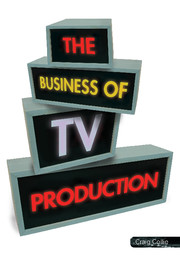Book contents
- Frontmatter
- Contents
- Preface
- Diagrams and tables
- Abbreviations
- Part A Opiate of the people: the television industry
- Part B Massage parlour: development and funding of a project
- Chapter 5 The concept
- Chapter 6 Development of the project
- Chapter 7 Approaches to genre development
- Chapter 8 The pursuit of funding
- Chapter 9 Management of a creative project
- Chapter 10 Multi-platform projects
- Chapter 11 Marketing and distribution
- Part C Riding the tiger: management of the production
- Part D A nod to the gatekeepers: the environment of television
- Index
- References
Chapter 5 - The concept
Published online by Cambridge University Press: 05 June 2012
- Frontmatter
- Contents
- Preface
- Diagrams and tables
- Abbreviations
- Part A Opiate of the people: the television industry
- Part B Massage parlour: development and funding of a project
- Chapter 5 The concept
- Chapter 6 Development of the project
- Chapter 7 Approaches to genre development
- Chapter 8 The pursuit of funding
- Chapter 9 Management of a creative project
- Chapter 10 Multi-platform projects
- Chapter 11 Marketing and distribution
- Part C Riding the tiger: management of the production
- Part D A nod to the gatekeepers: the environment of television
- Index
- References
Summary
Part A looked at the television industry, where it has come from, where it is going (to the extent that anyone knows or thinks they know), the styles of production it interests itself in and the particulars of the Australian industry. The producer has not featured greatly up to this point, but now is the time to introduce that person because the story of the business of television production is the story of the producer.
The television producer shepherds the program from concept to delivery and often on further to marketing and distribution. As implied, the first stage to examine in this process is the concept – where it might come from and what form it might take. But before that, there is the question of what exactly a producer is. The title sounds precise enough, especially if expressed with no hint of uncertainty, but it can be used with a lack of clarity about what it entails and how crucial an effectively functioning producer is to the ongoing wellbeing of a production project. What sort of people does this role require, what sorts of skills and knowledge should they have, and what are their principal functions and responsibilities in a production project?
The role of the producer
The label of producer
‘Producer’ is a self-designated role. It requires no specific training, background or knowledge and, as a result, there are often abuses of the title.
- Type
- Chapter
- Information
- The Business of TV Production , pp. 79 - 92Publisher: Cambridge University PressPrint publication year: 2007



